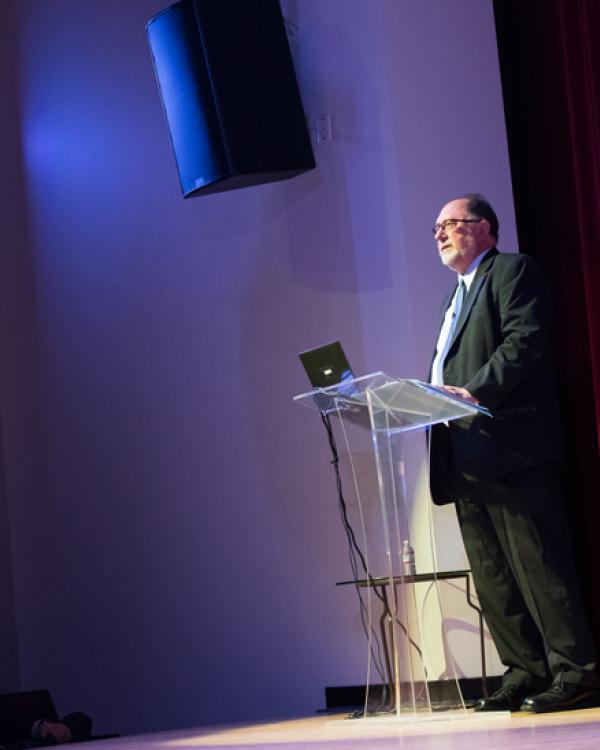
Dean Milem giving the first Dean's Lecture on Education, Diversity and Democracy in October 2017 (photo by Matt Perko)
This spring Princeton University brought in Dean Jeffrey Milem of UC Santa Barbara’s Gevirtz School as a consultant to help improve the school’s climate for diversity. The Provost Office arranged for Milem to give talks to faculty, staff, and students, hold a workshop, and meet with the Provost staff and deans. Milem’s work was to help the university community find practical ways to achieve its goal of a more diverse environment that is therefore more intellectually and socially stimulating while also more equitable.
As a widely recognized expert in the area of racial dynamics in higher education, Dr. Milem has been commissioned to do research by the Institute of Medicine of the National Academies, the Association of American Medical Colleges, the Harvard Civil Rights Project, the American Council on Education, the Association of American Colleges and Universities, the American Educational Research Association’s Panel on Racial Dynamics in Higher Education, and numerous colleges and universities.
With his colleagues Mitchell Chang and Anthony Antonio, he co-authored Making Diversity Work on Campus: A Research Based Perspective, published by the Association of American Colleges and Universities, which translates research demonstrating the educational benefits of diversity to develop a “roadmap” for college leaders of the conditions that must be in place if they are to maximize the opportunities for teaching and learning that racial diversity provides. Milem contributed to two of the three books that Justice Sandra Day O’Connor cited in her majority opinion in Grutter v. Bollinger as being influential in helping to document the university’s claim regarding the educational benefits of diversity. He also worked closely on amicus briefs for both iterations of the Fisher v. Texas case.
Princeton hired its first Dean for Diversity and Inclusion three years ago in response to both a special task force on diversity, equity, and inclusion and a student protest that demanded the removal of former university and U.S. President Woodrow Wilson’s name from campus, citing his segregationist views. While Wilson’s name remains on campus, the school has focused on many initiatives to make the campus more welcoming to people of all backgrounds. Dean Milem’s work there was one such initiative.